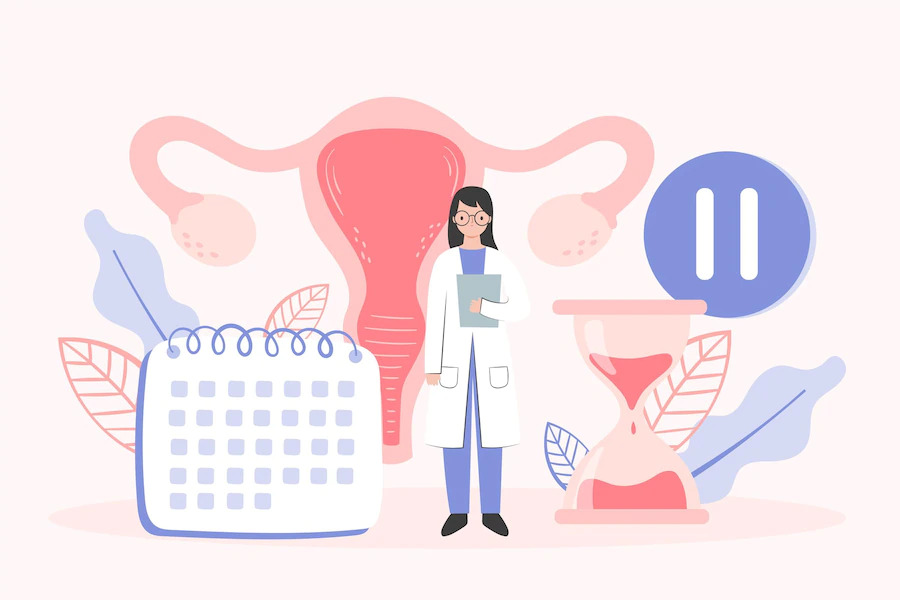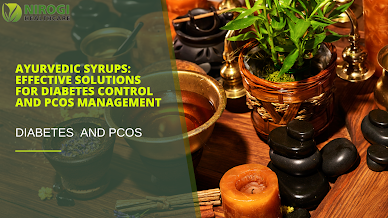PCOS - A New Epidemic Causing Infertility and More
What Is PCOS?
PCOS refers to multiple cysts on the ovaries and a host of other problems that go on with them, including lack of ovulation and menstrual abnormalities, facial hair, manly pattern baldness, acne, and weight gain. Women suffering from this condition may also have varying degrees of insulin resistance and an increased prevalence of Type II diabetes, high cholesterol & elevated androgen situations.

What are the symptoms of PCOS?
- You may stop ovulating, or it becomes infrequent
- have trouble falling pregnant
- experience hard hair on the face and body
- suffer from acne
- experience high blood pressure
- suffer from high cholesterol
- develop elevated insulin situations or insulin resistance
- gain weight steadily for no real reason
- suffer mood changes & last but not least your periods stop, come irregular or painful & your hair thins
What are its causes?
PCOS occurs when a woman does not ovulate, which causes a disruption in the normal, cyclical interaction among her hormones, brain, and ovaries. The exact cause of PCOS is unknown. In history, it was assumed that PCOS was caused entirely by the excess of androgen in the body. More recent exploration has shown that Metabolic patterns associated with insulin resistance and high situations of insulin play key places in PCOS.
The problem is, most of the time women with PCOS try hard to lose the weight only to find that they either can not lose it- or it rebounds once they complete their diet.
Some possible causes of PCOS are high consumption of junk foods, High saturated fat intake, Genetics, Environmental factors, life Factors including stress, lack of exercise, and poor nutrition, Birth control capsules & contraceptive pills
The Diet Connection to PCOS
By far the biggest life contributor to PCOS is poor diet. Research supports that high consumption of sugar and refined carbohydrates be getting an unhealthy rise in insulin situations. Insulin stimulates androgen receptors on the outside of the ovary, causing the typical PCOS symptoms of dark hair( on the face, arms, and legs), thin hair( on the head), and acne. In the end, this type of diet will cause weight gain, which will result in insulin resistance( the incapability of the cells to take in insulin) which will aggravate PCOS indeed more.
So how does Insulin affect PCOS?
Insulin resistance and excess insulin production appear to be the reason of the overproduction of androgens associated with PCOS. Insulin transports sugar( in the form of glucose) out of the blood and into muscle, fat, and liver cells, where it’s converted into energy or stored as fat. Women with PCOS produce excessive insulin because their cells are “resistant” to insulin.
The body compensates by producing extra insulin. Resistance means that the process of removing sugar from the blood and into the cells is imperfect and the cells don’t respond to insulin. The pancreas senses high situations of glucose and continues secreting insulin to remove sugar from the blood and into the cells.
When you look at the whole picture of PCOS, you can understand why hormone-blocking medicines similar to birth control pills & insulin- lowering medicines, do not work for a long time. These approaches do not address the main cause of the problem, they only suppress symptoms.
What’s the best treatment for PCOS?
Doctors tend to offer two treatments, both of which affect symptoms only, and neither of which is particularly successful. One treatment is a direct manipulation of reproductive hormones using birth control capsules, androgens, androgen blockers & synthetic estrogens. The other is giving oral medicines for Type II diabetes, which reduces insulin resistance.
Losing weight is one of the main treatments for PCOS, yet it’s one of the hardest treatments to achieve and slim ras syrup is an ayurvedic syrup that helps in losing weight. Whether weight gain is a cause of PCOS or it is a result of PCOS is unclear. PCOS isn’t” cured” by weight loss, but the symptoms of PCOS may be lessened by it, or increased by weight gain.
One of the most important things to remember is that everyone is different – what foods to eat varies according to what your individual hormonal influences. The best approach is to borrow a life system that improves hormonal balance performing in metabolic health, allowing you to lose fat & keep it off. It’s important for you to
– Identify hormonal imbalances
– apply a diet that reflects your hormonal requirements
– Exercise regularly
– Implement nutritional & ayurvedic treatment for PCOS
If you have PCOS you can enhance your fertility and your chances of having a healthy baby by losing weight. This is why weight reduction should be the first line of treatment for PCOS people who suffers from trying to conceive. This needs a multidisciplinary approach to weight operation that fosters lifestyle change through proper diet, exercise, and stress reduction.
The tragedy, of course, is that this is easy to advise, but quite hard to do. No one wants to be fat and losing weight can be really hard to negotiate if you have PCOS. But with the right help, in most cases, it can be achieved.
Original Source: Best Treatment for PCOS in Ayurveda


Comments
Post a Comment